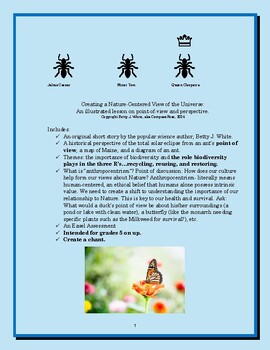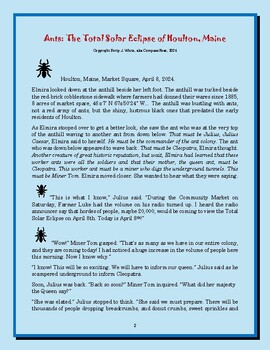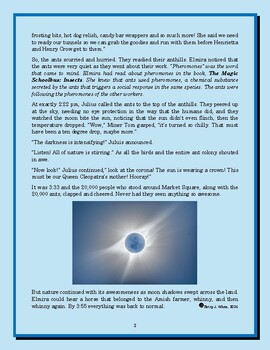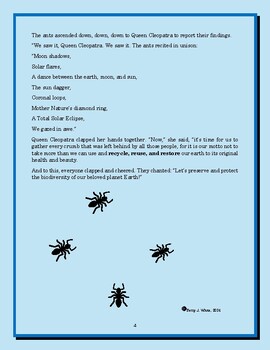Ants: A Lesson on Point-of-View and Biodiversity
- PDF
- Easel Assessment
Description
How to Create a Nature-Centered View of the Universe
Copyright Betty J. White, aka Compass Rose, 2024
Includes:
*An original short story by the popular science author, Betty J. White.
*A historical perspective of the total solar eclipse from an ant’s point of view.
*Illustrations.
*Themes: the importance of biodiversity and the role biodiversity plays in the three R’s…recycling, reusing, and restoring.
*What is “anthropocentrism”? Point of discussion: How does our culture help form our views about Nature? Anthropocentrism- literally means human-centered, an ethical belief that humans alone possess intrinsic value. We need to create a shift to understanding the importance of our relationship to Nature. This is key to our health and survival. Say: "The short story is told from the ants' point-of view. How is this different from telling the story entirely from a human's point of view (Elmira's)?... Continue by asking: What would a duck’s point of view be about his/her surroundings (a pond or lake with clean water), a butterfly (like the monarch needing specific plants such as the Milkweed for survival?)", etc.
*A recipe, a map of Maine, and a diagram of an ant.
* Create a chant, a song. "Highly engaging!"
*Easel Assessment
Suggested for grades 5 on up.






